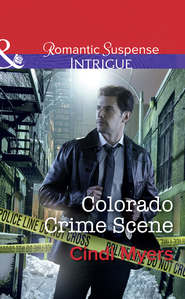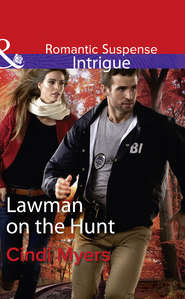По всем вопросам обращайтесь на: info@litportal.ru
(©) 2003-2024.
✖
A Man to Rely On
Автор
Год написания книги
2019
Настройки чтения
Размер шрифта
Высота строк
Поля
“She seems to have come through it all right.”
Marisol nodded. “As well as she could, I suppose.” She took another long sip of tea, studying him over the rim of the glass. “Tell me about yourself. All I know is that you’re Jay’s son. I’m sorry I don’t remember much from school.”
“There’s no reason you should. I was two years behind you.” He replaced the papers in the portfolio, sorting through all the things he might tell her about himself. I once had a huge crush on you, or I almost ruined my life a few months ago and am still trying to pull my reputation out of the cellar. “There’s nothing exciting to tell,” he said. “I used to work for one of the big firms in town, but six months ago I opened a solo office in my dad’s building. I’ve lived in Cedar Switch all my life. Guess I’m just a small-town kind of guy.” While she was definitely not a small-town girl.
“Are you married?”
The question startled him. Was she merely making conversation, or was she truly interested? His heart beat faster at this idea. “I’m…seeing someone,” he admitted, reluctantly.
“You probably think I’m being nosy,” she said. “I don’t mean it that way. It’s just that I never thought I’d be single at this age and I wonder how it is for other people.” She traced one finger around the rim of her glass, the gesture strangely sensual. Her nails were long, painted a pale pink. “I married Lamar when I was nineteen. We were together sixteen years. Now it’s as if…I’ve not only lost my husband, I’ve lost my whole identity.” She laughed, a jagged, desperate sound. “It’s like being a teenager all over again, trying to find myself.”
“I don’t think there’s any deadline on figuring out what you want to do with your life,” Scott said. “At least I hope not. I’m not sure I’ve answered that question for myself yet.”
She nodded, and pushed her glass away, then stood. “Thank you for stopping by. Is there anything else you need from me?”
“Not now.” He gathered up his papers and prepared to leave, wishing he had an excuse to linger.
She walked him to the door, thanked him again, then shut the door behind him. Before he drove away, he glanced at the house once more, half hoping to catch a glimpse of her at a window.
But there was no sign of her. He checked the mirror, then pulled into the street. His newest client fascinated him, not so much for her notoriety, or even for the long-ago crush he’d had on her.
Marisol was independent and determined to keep her distance from everyone, and yet he sensed a deep longing for connection within her. That longing, more than anything, called to him. He shook his head, unsure how much of this perception was true, and how much was based on everything he’d believed about her when he was a boy.
He’d believed that she knew more about life than he could even guess.
That she’d been hurt, but didn’t let it show.
That she was braver than anyone he knew.
And now? He still believed that she was brave and wise. With one smile, she’d reduced him to a stammering schoolboy. With one look, she’d reminded him what it meant to be a man. What it was like to want a woman not only for her looks, but for her mystery.
CHAPTER THREE
M ARISOL REPORTED for her first day of work at the Bluebonnet Café as jittery as someone who’d downed three cups of coffee, though she’d stuck to herbal tea at breakfast. She hadn’t had a real job since a stint at McDonald’s as a teenager, but she was determined to do her best.
Mary greeted her with a firm hello and handed her a black apron and an order pad. “We do things the old-fashioned way here,” she explained as she led Marisol toward the kitchen. “Write the order down and give a copy to the cook.” She introduced Marisol to the cook, Frank, and the other waitress, Paula.
“Just holler if you need help with anything,” Paula, a diminutive blonde who wore bright pink lipstick, offered. “You’ll get the hang of it in no time.”
As it turned out, the worst part was not remembering which table ordered what, or even carrying the heavy trays without dropping them. The worst part was forcing herself to ignore the stares and whispers when diners realized who she was.
“What in the world are you doing working here?” a burly man with a luxuriant gray moustache asked as she refilled his coffee cup. “I thought I read Lamar Dixon had more money than God.”
“Maybe he did,” she said calmly. “But he pissed it all away.”
That surprised a laugh from the man. Marisol turned and walked on shaking legs to replace the coffeepot on the burner.
“How’s it going?” Paula asked, joining Marisol.
“Okay,” Marisol said. Most people had been polite, and she’d pocketed fifteen dollars in tips in her first two hours. Not bad considering most people only wanted coffee and one of Mary’s oversize cinnamon rolls.
“Business is up this morning,” Mary said as she passed on her way into the kitchen. “I reckon everyone wants to get a look at you.” She nodded to Marisol.
Marisol flushed. Paula patted her arm. “Don’t worry. The novelty will wear off in a few days and you’ll be as invisible as I am.”
Paula left to take the order from a table of truck drivers, who grinned and flirted. So much for being invisible. Marisol took a deep breath and went to clear the table the moustached man had vacated. He’d left a five-dollar tip. She stared at the bill, angry at the pity the gesture implied, furious with herself for revealing the desperateness of her situation to a stranger. Next time someone had the nerve to ask what she was doing here, she’d be glib, and tell them she was rehearsing for a starring role in a movie about a waitress—or thinking about writing a book.
She pocketed the bill with her other tips and moved on to the next table, three women who stared at her with open curiosity, but said not a word.
By lunchtime, Marisol’s feet and legs hurt from standing so long, but she felt more comfortable taking orders and was congratulating herself on mastering the knack of carrying a loaded tray of food. On Paula’s advice, she’d made more of an effort to smile. Not only did it improve her disposition, it had the added bonus of unsettling those who gawked the most. They apparently hadn’t expected an accused murderess to be so friendly.
A flutter of nerves struck her anew when Scott Redmond came into the café with his father. The sharp physical attraction she’d felt for him yesterday had caught her by surprise. After so many months of being forced to bury every emotion, such frank desire made her feel almost giddy with relief and wonder. That living, lusting, female part of her hadn’t died along with Lamar. It had only been hiding, waiting for the right moment—or the right man?—to reappear.
The question remained as to what she would do about it. The thought of a solely physical affair, with no strings attached and no promises for the future, held all the appeal of forbidden fantasy. But she had Toni—and Scott himself—to consider. As much as she longed to be selfish for once, practicality and a cursed sense of responsibility interfered.
The two men sat at one of the booths assigned to her, and greeted her with warm smiles. “How’s your first day going?” Jay asked.
“I think I’m getting the hang of it,” Marisol said.
“She’s doing great.” Mary came up behind her and put one hand on Marisol’s shoulder. “I think I might let her stay.”
“I’m glad to hear it,” Scott said. His gaze met and held hers for a beat too long. Her heart thudded in her chest like a wild bird, proving she hadn’t imagined the attraction between them.
He was the first to look away. He picked up the menu and studied it, then said, “I’ll have a burger and a glass of iced tea.”
“Give me the Reuben,” Jay said. “And a Diet Coke.”
She hurried from the booth to turn in their orders, aware of his gaze on her as she crossed the room. He’d watched her yesterday, too, checking her out as she fixed their tea. Clearly, he liked what he saw, just as she appreciated his broad shoulders and slim hips, the wiriness that was in direct contrast to Lamar’s height and muscular bulk.
She collected chicken-fried steak dinners for a quartet of construction workers and started across the room, veering around a young man who’d inexplicably stopped in the middle of the room. She’d almost reached the table when a bright light blinded her, followed quickly by a second flash, and the unmistakable click of a camera shutter. A woman squealed. The young man who’d been stopped shoved a small tape recorder in front of her face. “Mrs. Dixon, what can you tell us about your new job here at the Bluebonnet Café?”
The tray slipped from Marisol’s hands, chicken-fried steak, mashed potatoes and green beans flying. The camera flashed again and she ducked, shielding her face, while voices rose around her.
“Out! Out of here before I call the police!” Mary shouted at the reporter and photographer, who ignored her, continuing to take pictures and shout questions at Marisol.
Paula rushed over and began cleaning up the spilled food, while the construction workers complained loudly about Marisol’s clumsiness and their ruined dinners. Mary continued to shout at the two intruders.
Panic and anger choking her, Marisol tore off the apron and flung it and her order pad onto the counter. She had to get out of here, lay low somewhere until things calmed down. She darted for the door, only to find her exit blocked by the reporter, who grinned and extended the microphone. “Is it true you’re originally from Cedar Switch, Mrs. Dixon? What do the people here think of your notoriety?”
“I think if you don’t move out of the way and stop blocking the door, I’ll make you move.”
Marisol hadn’t thought of Scott as an imposing man before, but there was definite menace in his posture now as he glowered at the reporter.
“Better do as he says,” Jay spoke from just behind his son.
The reporter glanced from one man to the other, then decided retreat was in order. With a sweeping bow, he indicated the door was clear.
Scott put one arm around Marisol and guided her down the sidewalk. “I didn’t see your car in the lot or on the street. Did you walk?”











